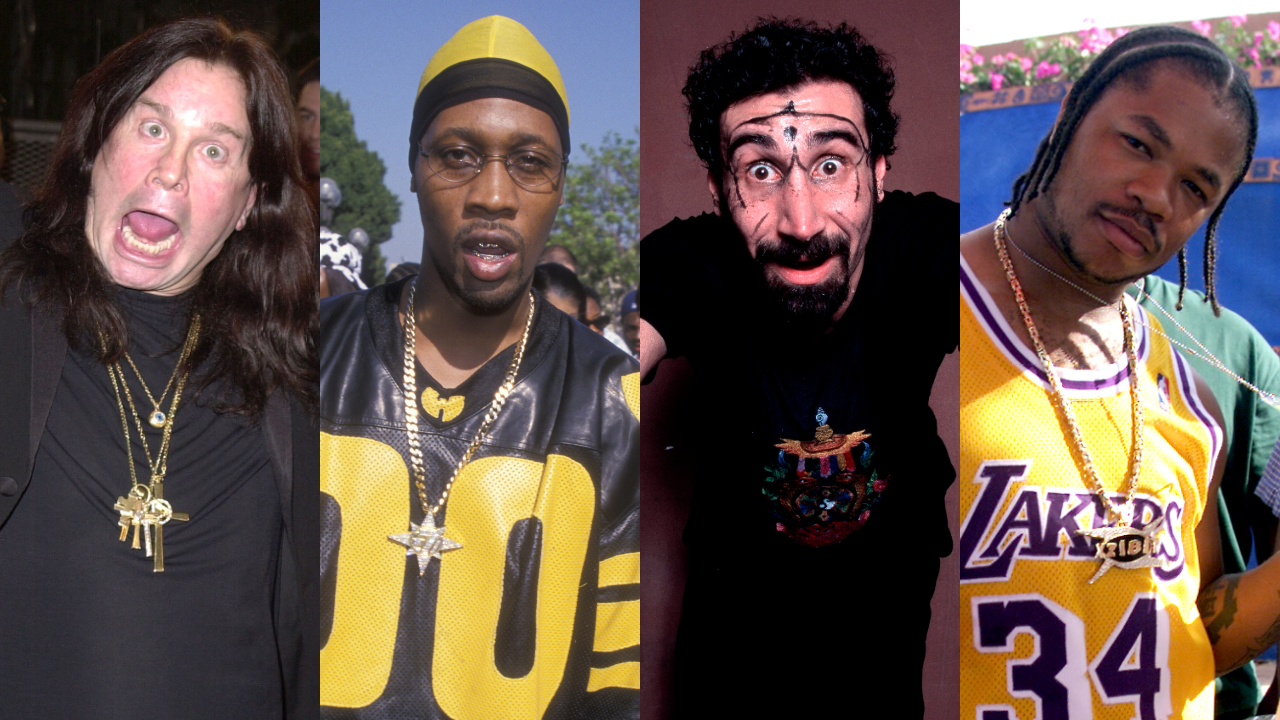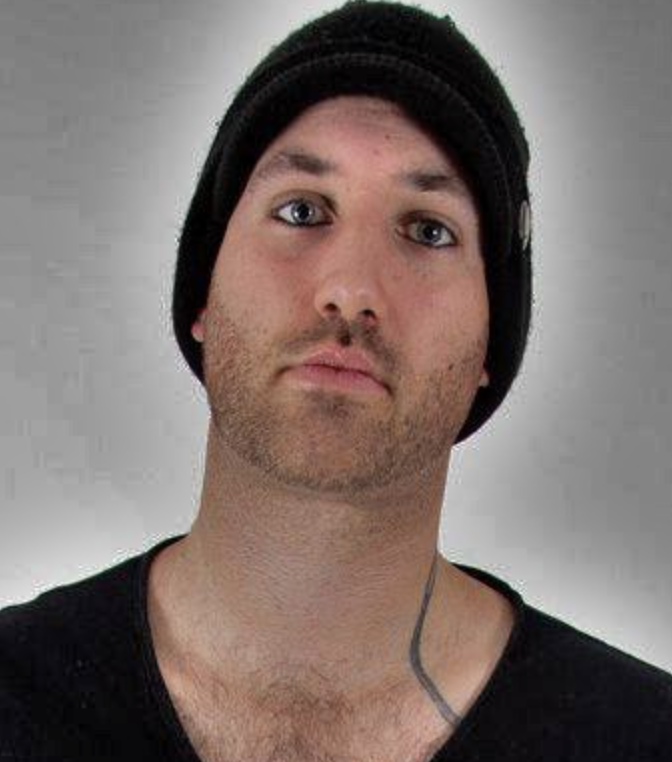"I thought this album was going to be the biggest of my career." The crazy forgotten music project featuring Ozzy Osbourne, System Of A Down, Wu-Tang Clan, Xzibit and more than was meant to be legendary, but was a total disaster
This could have been incredible, but it was an absolute flop

Select the newsletters you’d like to receive. Then, add your email to sign up.
You are now subscribed
Your newsletter sign-up was successful
Want to add more newsletters?

Every Friday
Louder
Louder’s weekly newsletter is jam-packed with the team’s personal highlights from the last seven days, including features, breaking news, reviews and tons of juicy exclusives from the world of alternative music.

Every Friday
Classic Rock
The Classic Rock newsletter is an essential read for the discerning rock fan. Every week we bring you the news, reviews and the very best features and interviews from our extensive archive. Written by rock fans for rock fans.

Every Friday
Metal Hammer
For the last four decades Metal Hammer has been the world’s greatest metal magazine. Created by metalheads for metalheads, ‘Hammer takes you behind the scenes, closer to the action, and nearer to the bands that you love the most.

Every Friday
Prog
The Prog newsletter brings you the very best of Prog Magazine and our website, every Friday. We'll deliver you the very latest news from the Prog universe, informative features and archive material from Prog’s impressive vault.
1993’s groundbreaking Judgment Night soundtrack, which saw the hottest hip hop artists of the time collaborating with the era's best in rock and metal, became one of the most beloved releases of the 90s. As rap and heavy guitars took steps closer and closer towards each other throughout the decade, it seemed like the perfect, zeitgeist-capturing release.
Decades down the line, many fans of what is now considered the great mash-up of the time have all asked the same question: why hasn't this been done again?
The answer is...well...it has, actually. You just probably don’t remember it. You see, in the year 2000, inspired by seeing two of the era's most dangerous bands touring together, a hip hop entrepreneur released an album that pulled the same trick as Judgment Night - an album that brought System of a Down, Ozzy Osbourne and the Wu-Tang Clan together, and an album he thought would be the biggest of his career. It was called Loud Rocks. And it completely flopped.
Steve Rifkind had been born into the music industry thanks to his record producer father, Jules. By the late 80’s he was managing Bobby Brown’s R&B band New Edition, and by 1991 had formed his own imprint, Loud Records. A fan of early rap, his label was responsible for some of the most iconic hip hop albums of the 90s, Wu-Tang Clan’s 36 Chamber, Mobb Deep’s The Infamous, Big Pun’s Capital Punishment and Raekwon’s Only Built 4 Cuban Linx amongst them.
In 1997, Rifkind attended a show on the infamous Rage Against the Machine and Wu-Tang Clan co-headlining tour. There he saw metal fans mixing with hip hop heads and realised that the two genres were on, as he later put it, “the same street, just different blocks.” He began to think about how he could make a record that amalgamated the sounds in the way he saw the audience mixing that night.


He couldn’t have picked a better time. In the late 90s, not only was nu metal's collision of rap and metal absolutely massive, but plenty of rock stars were being found popping up on songs by hip hop artists: Korn were on an Ice Cube album, Ozzy Osbourne featured on a Busta Rhymes song, Dave Grohl and Rob Zombie were involved with a remix of a Puff Daddy’s All About the Benjamins and members of Godsmack, Sevendust and Amen appeared on Vanilla Ice’s shocking, Ross Robinson produced clanger, Hard to Swallow (we'll ignore that one).
Rifkind’s epiphany led to the creation of Loud Rocks, ostensibly working off the same theory as Judgment Night, just pushed forward a few years and with rock bands covering songs by rap artists, with said rap artists on the tracks.
The latest news, features and interviews direct to your inbox, from the global home of alternative music.
“I thought this album was going to be the biggest of my career,” Rifkind told the Bootleg Kev Podcast earlier this year. “It’s right in the middle of Limp Bizkit, Kid Rock... we had System of a Down, Dead Prez, Crazy Town doing Only When I’m Drunk by Tha Alkaholiks...I really thought it was going to be the biggest.”
He obviously wasn’t alone. When asked if it was difficult to get the hip hop artists on his own label to essentially help cover their own songs, Rifkind replied flatly: “No, they did it in two seconds.”
Unfortunately, managing to get the biggest of metal’s big hitters from the time involved proved to be something of a challenge. “The problem was that we couldn’t get clearance anywhere, from the other artists labels,” Rifkind shrugged.
It meant that, while Wu-Tang, Dead Prez, Xibit, Big Pun, M.O.P., Mobb Deep, Wyclef Jean and more made for strong representation on the rap side, the somewhat forgotten likes of Shootyz Groove, Finger Eleven, Endo and Crazy Town left the rock side looking slightly lopsided.
Still, Rifkind did manage to pull in a few massive hitters.
“We were asked to do this compilation Loud Rocks and cover a Wu Tang song,” System of a Down bassist Shavo Odadjian told the Drinks With Johnny Podcast. “And we chose the song Shame. I really wanted one of [Wu Tang] to be on it, and we wanted to be respectful to a great song. We also felt it was ballsy to do it.”
It certainly was ballsy, particularly considering the lyrical content of the song, which SOAD frontman Serj Tankian really doesn’t shy away from singing.
“You know with the words ‘Shame on a n***a’ and all that,” adds Shavo. “I know it is saying 'Shame on a brother', but we didn’t know at the time that it sounded wrong coming out of our mouths. This was 20 years ago. We have respect for all cultures and people.”
Wu Tang’s RZA ended up performing on the track, the album’s opening song, and, despite the shock of hearing Serj dropping N-bombs, it’s the clear and undisputed highlight of the record, beginning a relationship between the pairing that has lasted to this day.
It’s one of three features from members of Wu Tang, with Ozzy Osbourne and Tony Iommi appearing with the entire crew on For Heaven’s Sake 2000 and Red Hot Chili Peppers drummer Chad Smith and Rage Against The Machine guitarist Tom Morello adding a huge, hulking backbeat to a remix of Wu Tang Clan Ain’t Nuthing Ta F' Wit.
Overall, the Wu-Tang songs are the ones that have aged the best, although Sick of it All and Mobb Deep and Incubus and Big Pun deserve credit for doing a pretty good job with their respective efforts.
Despite that, there's just too much filler throughout, and for an album that Rifkind thought was going to be the biggest of his illustrious career and was plugged as “The most important record of its generation” when Loud Rocks was released on September 5, 2000, it peaked at a meagre number 108 on the Billboard Top 200 and was quickly forgotten.
So, yeah, in a way, we did get another Judgment Night. You just never got to hear about it. Shame.

Stephen joined the Louder team as a co-host of the Metal Hammer Podcast in late 2011, eventually becoming a regular contributor to the magazine. He has since written hundreds of articles for Metal Hammer, Classic Rock and Louder, specialising in punk, hardcore and 90s metal. He also presents the Trve. Cvlt. Pop! podcast with Gaz Jones and makes regular appearances on the Bangers And Most podcast.
You must confirm your public display name before commenting
Please logout and then login again, you will then be prompted to enter your display name.


